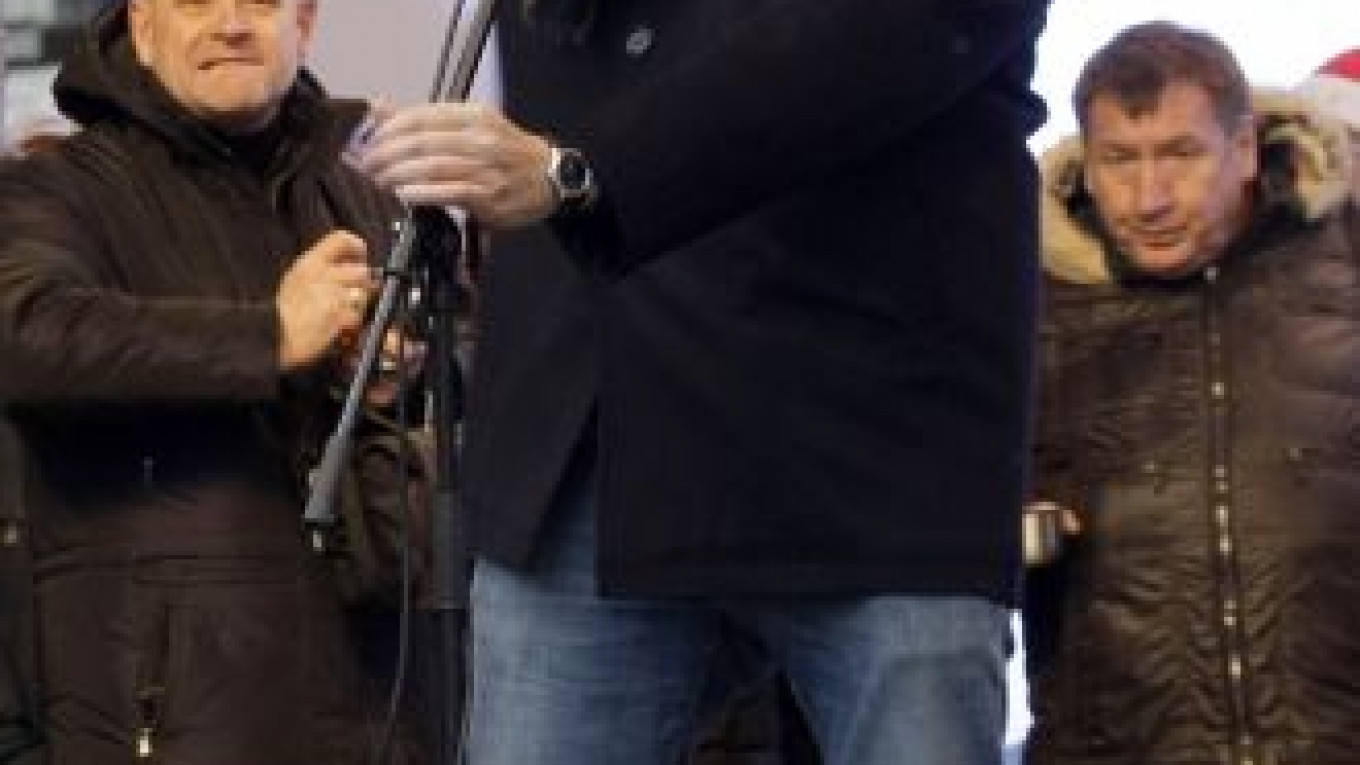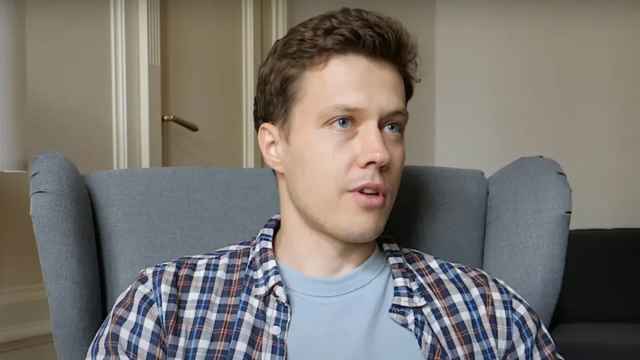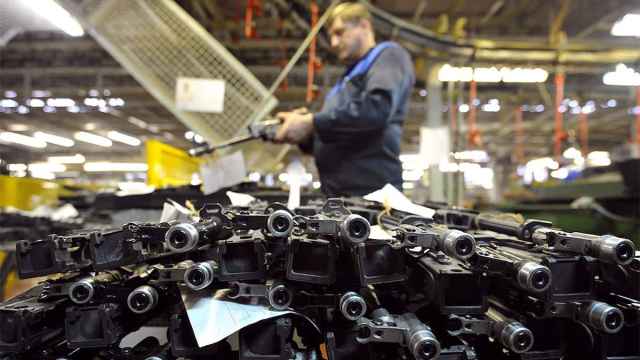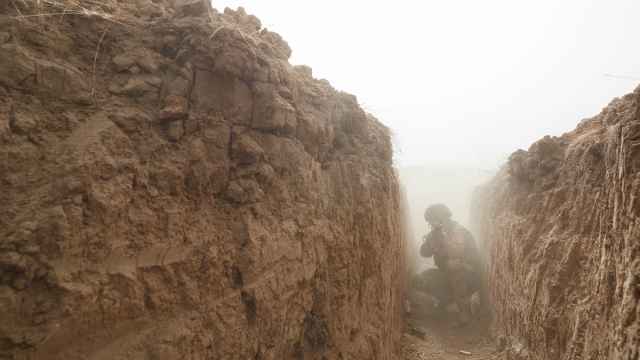Alexei Navalny has done more than any other opposition leader to lay the groundwork for the protest movement now challenging Prime Minister Vladimir Putin's 12-year grip on power. His reward came last weekend when he took the stage before tens of thousands of cheering demonstrators.
Working the crowd like a firebrand preacher, Navalny had people responding to his calls with cries of "Yes" and "We are the power!" His role now looks set only to grow.
The 35-year-old corruption-fighting lawyer and popular blogger has inspired and mobilized many in Russia's young Internet generation, who until recently had seemed reluctant to get up from their laptops.
He reaches tens of thousands through his blog, consistently among the top three on LiveJournal, and has more than 167,000 followers on Twitter.
He has tapped into deep anger throughout society, particularly over the corruption that pervades public life and the generous subsidies sent to the restive mostly Muslim regions in southern Russia. Navalny's description of Putin's political party as the "party of crooks and thieves" and his call to "stop feeding the Caucasus" have become catchphrases of the opposition.
The Kremlin has woken up to the threat posed by the charismatic and ambitious Navalny, but efforts to silence him have only added to his stature.
Navalny was arrested after leading a protest march in defiance of police on Dec. 5, the day after parliamentary elections. The shameless falsifications that had helped Putin's United Russia party retain its majority outraged many Russians, and more than 5,000 joined what turned into the largest anti-Putin demonstration in years. Navalny was jailed for 15 days, but the protests only grew.
When he was released last week, Navalny said he felt that he had been "jailed in one country and freed in another." Dozens of camera crews had waited into the early hours of the morning for his release, in a sign of his growing fame.
He was one of the most anticipated speakers at Saturday's rally, which drew an estimated 70,000 to 100,000 people in the largest protest in the country since the demonstrations that swept away the Soviet Union two decades ago.
The outpouring of public anger has shaken Putin as he prepares to return to the presidency in a March election. He needs more than 50 percent of the vote to avoid a second round, and polls show that he will have trouble pulling this off if he meets protesters' demands for a free and fair election.
Still, Putin's eventual victory does seem assured. He faces a handful of challengers in what appears to be a Kremlin strategy to split the protest vote. His most serious rival is the veteran Communist leader, an unpalatable choice for most of the demonstrators. The opposition has no consensus candidate it could rally behind.
Navalny says he won't stand in this election because of the barriers that block any candidates that do not have Kremlin approval.
Speaking Monday night on Ekho Moskvy radio, he called for continued pressure on the Kremlin to follow through on its promises to make it easier for opposition candidates to compete in elections. If this happens, he said he might form his own political party and run for president in the future.
In the meantime, he intends to drive the protest movement on the street, giving voice to Russians who are tired of having their votes stolen.
"We will take to the streets as long as they don't give us back what belongs to us!" Navalny shouted at the weekend rally. "We are peaceful people, but there is an end to our patience!"
Stanislav Belkovsky, a well-connected political analyst, said that while Putin's team hopes to retain power by splitting the opposition and incorporating some of its leaders into the government, it doesn't know what to do with Navalny.
"Navalny's name is taboo for them, they are really afraid of him," Belkovsky said.
Navalny first made his name a few years ago by fighting corruption. Using his rights as a minority shareholder, he gathered evidence of corruption at state-controlled oil and gas companies and banks. Cases he filed against some of the biggest names in Russian business have made little progress in court, but he exposed some seemingly outrageous practices.
He also has used his skills to attack corruption inside government at all levels. About a year ago he set up a web site where he posts government documents announcing tenders for various goods and services. His team of lawyers studies them, and he also invites anyone who is interested to review the documents online. Navalny claims that the government has withdrawn scandalous tenders worth millions of dollars after they were exposed by his site. In one telling example, the Interior Ministry canceled an order for a hand-carved gilded bed intended for one of its residences.
Yulia Latynina, a columnist who supports Navalny, said he has proved his political skills.
"He made half of the Russian Internet work for him, and he built a strategy for the parliamentary campaign without taking part in it," she wrote in an online commentary.
Navalny, however, has plenty of detractors even among the opposition. Some are turned off by his shrill populism and his flirting with ethnic Russian nationalists.
"Society, unlike a crowd, demands respect," Alexander Podrabinek, a former Soviet dissident and political prisoner, wrote in a commentary on Grani.ru. "If you openly manipulate it as Navalny does, the best part of it will be reluctant to show up at the next rally. Rallies of the liberal opposition will then turn into something similar to the Russian Marches."
Navalny took part in last month's Russian March in which thousands of nationalists marched through Moscow to call on ethnic Russians to "take back" their country, some raising their hands in a Nazi salute.
Many Russians resent the influx of dark-skinned Muslims into Moscow and other cities. Many also resent the disproportionate amount of budget money sent to Chechnya and other Caucasus republics, seen as a Kremlin effort to buy loyalty after two separatist wars.
Navalny defends his association with nationalists by saying their concerns are widespread and need to be addressed as part of any broad movement pushing for democratic change, but many in the liberal opposition fear that he is playing with fire.
Some opposition leaders also seem alarmed by Navalny's soaring popularity.
"We are already seeing signs of a Navalny cult," Vladimir Milov wrote in a column in the online Gazeta.ru. "I wouldn't be surprised if grandmothers from the provinces start showing up here asking where they can find him so he can cure their illnesses."
Milov, who is 39, said some of the older liberal opposition leaders who have been involved in politics since the 1990s would try to prevent Navalny from taking over the protest movement.
"Old political foxes who hate a young and promising competitor will try to drown him," he wrote.
Navalny has avoided public spats with other opposition leaders, focusing on the need to consolidate the protest movement and bring a growing number of people onto the streets to push for a fair presidential election.
"We will get 1 million people, and they won't be able to do anything but fulfill our demands," he said.
A Message from The Moscow Times:
Dear readers,
We are facing unprecedented challenges. Russia's Prosecutor General's Office has designated The Moscow Times as an "undesirable" organization, criminalizing our work and putting our staff at risk of prosecution. This follows our earlier unjust labeling as a "foreign agent."
These actions are direct attempts to silence independent journalism in Russia. The authorities claim our work "discredits the decisions of the Russian leadership." We see things differently: we strive to provide accurate, unbiased reporting on Russia.
We, the journalists of The Moscow Times, refuse to be silenced. But to continue our work, we need your help.
Your support, no matter how small, makes a world of difference. If you can, please support us monthly starting from just $2. It's quick to set up, and every contribution makes a significant impact.
By supporting The Moscow Times, you're defending open, independent journalism in the face of repression. Thank you for standing with us.
Remind me later.






